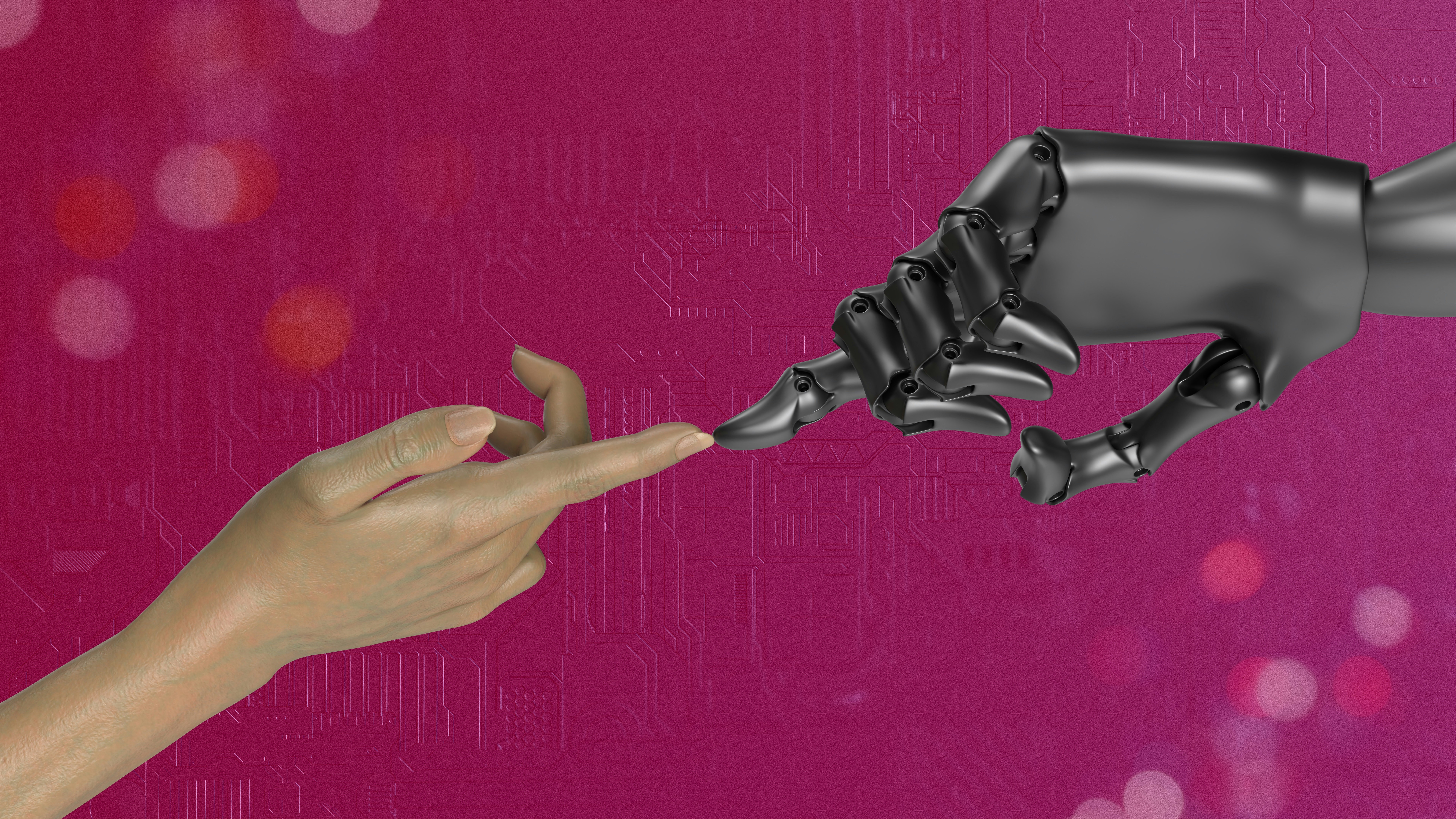Omnichannel marketing automation is the foundation of a successful marketing strategy in today's digital era. Imagine engaging with your customers across every touchpoint, enhancing their journey at every turn. You can create a tailored, seamless experience that keeps customers returning for more. This article will provide you with tips and strategies to help you learn omnichannel marketing automation, boosting brand loyalty and drive conversions.
Rengage's omnichannel marketing platform is the perfect tool to help you realize these goals in your marketing strategy. With features that enhance your omnichannel customer experience, you will have everything you need to build a strong, lasting relationship with your customers.
Table of Contents
- What is Omnichannel Marketing Automation?
- Building an Omnichannel Marketing Automation Strategy (8 Steps)
- Essential Elements of Effective Omnichannel Marketing Automation
- Strategies for Omnichannel Marketing Automation
- Create Personalized Experiences That Drive Loyalty and Growth with Rengage's Omnichannel Marketing Platform
What is Omnichannel Marketing Automation?

Omnichannel marketing automation goes beyond simply blasting out messages through multiple channels. It's about orchestrating a cohesive customer journey that feels connected and personalized. It leverages marketing automation software and tools to:
- Streamline repetitive tasks
- Personalize interactions based on customer data
- Ensure consistent messaging across various channels.
Imagine your brand as a well-rehearsed play. Each marketing channel is an actor, and the automation platform is the stage director. The director coordinates the actors' movements (messages) to deliver a captivating performance (customer experience) that unfolds seamlessly across the entire stage (all touchpoints).
Benefits of Omnichannel Marketing Automation (with Examples)
Increased Customer Engagement
Imagine a customer browsing your online store for shoes. They abandon their cart without completing the purchase. Omnichannel automation allows you to send a targeted email reminder with abandoned cart details and a special discount code. This personalized nudge can reignite their interest and lead to a conversion.
Improved Customer Experience
Consistency is key to a positive customer experience. Omnichannel automation ensures a seamless flow of communication, regardless of the channel a customer interacts with. For instance, a customer might see an ad for your product on social media, click through to your website, and then receive a personalized welcome email with a discount offer. This cohesive experience fosters brand trust and satisfaction.
Personalized Marketing (with Examples)
You can tailor messaging to resonate with individual needs and preferences. For instance, an e-commerce store can segment its audience based on past purchases and browsing behavior. Customers who frequently buy athletic wear might receive emails with personalized recommendations for new workout clothes. In contrast, those interested in formal wear could get notifications about upcoming sales on dress shirts and suits.
Increased Efficiency
Marketing automation empowers you to automate repetitive tasks like:
- Email marketing campaigns
- Social media scheduling
- Abandoned cart reminders
This frees up valuable time and resources for your marketing team to focus on strategic initiatives and creative content development.
Measurable Results
Omnichannel marketing automation platforms provide comprehensive data and analytics dashboards. You can track key metrics like:
- Open rates
- Click-through rates
- Conversion rates
- Customer lifetime value
This data allows you to measure your campaigns' effectiveness, identify areas for improvement, and optimize your strategies for better results.
Related Reading
- Omnichannel eCommerce
- Omnichannel Marketing Strategy
- Omnichannel Personalization
- Omni Channel Marketing Examples
- Omni Channel Customer Engagement
- Omnichannel Marketing Tools
- Multichannel Marketing Automation
- Omnichannel CRM
- Marketing Automation ROI
Building an Omnichannel Marketing Automation Strategy (8 Steps)

1. Define Your Customer Journey (with Examples)
Defining your customer journey is the foundational step in crafting your omnichannel marketing automation strategy. You can identify automation opportunities at each stage by mapping out the touchpoints a customer interacts with along their journey.
For example, you could automate a welcome email series for new website visitors, provide educational content about different products, or trigger targeted SMS messages with exclusive deals for customers who visited a physical store but didn’t purchase.
2. Identify Your Marketing Channels (with Considerations)
When identifying your marketing channels, consider the most frequented channels by your target audience. Common channels include:
- Email, SMS
- Social media
- Website pop-ups
- Live chat
The most suitable channels vary according to industry, target audience demographics, and marketing objectives.
3. Segment Your Audience (with Strategies)
Segmenting your audience into distinct groups based on demographics, interests, behavior, and purchase history is crucial. This allows for the delivery of targeted messaging that resonates with each segment—for instance, segmenting an email list by age group and sending tailored birthday discount codes for specific product categories.
4. Develop Compelling Content (with Content Types)
High-quality content is central to any marketing campaign. Create informative, engaging content tailored to each channel and audience segment. Examples of content for different channels include:
- Educational blog posts in emails
- Short and timely updates in SMS
- Time-sensitive promotions through push notifications
5. Choose the Right Marketing Automation Platform (with Considerations)
Given the numerous options available, selecting the right marketing automation platform is crucial. When choosing a platform, consider factors like:
- Scalability
- Features offered
- Ease of use
- Budget
- Customer support
Popular options include:
- HubSpot
- Marketo
- Pardot
- Drip
6. Craft Automated Workflows (with Examples)
Automated workflows are the backbone of omnichannel marketing automation. These workflows trigger specific actions based on customer behavior. Examples include welcome email series triggered upon user signup, abandoned cart reminders encouraging customers to return and finalize the transaction, and win-back campaigns targeting inactive customers.
7. Personalize Your Communications (with Techniques)
Personalization is key in omnichannel marketing automation. Utilize customer data to personalize greetings, product recommendations, and offers in your automated messages. Techniques include:
- Addressing customers by name
- Tailoring content to specific audience segments
- Triggering messages based on customer behavior
8. Track and Analyze Results (with Metrics)
Monitoring campaign performance is essential for continuous improvement. Omnichannel platforms provide valuable data and analytics to track metrics such as:
- Open rates
- Click-through rates
- Conversion rates
- Customer lifetime value
By analyzing this data, you can identify areas for improvement, refine targeting strategies, and optimize your campaigns for better results.
Empowering Customer Journeys
We provide a comprehensive solution for managing and enhancing customer journeys, delivering insights and measurable outcomes with no code. We accelerate your customer journey from onboarding, activation to conversion and churn. Enabling customers to unlock revenue from their existing user. With Rengage, you can get insights into your segments, run campaigns with an intuitive journey manager, and get insights to measure how your journeys impact users conversion through:
Your journey moments and journey builder features.
- Journey Moments: insights into your micro-segments
- Journey Builder: intuitive multi-channel marketing automation
- Insights prediction and attribution.
Book a free demo to transform customer interactions into personalized experiences that drive loyalty and growth with our omnichannel marketing platform.
Essential Elements of Effective Omnichannel Marketing Automation

Data Management: The Foundation of Omnichannel Marketing
A robust data management system is indispensable to ensure successful personalization and segmentation. This system should serve as a centralized repository for all customer data, including:
- Demographics
- Purchase history
- Website behavior
- Preferences derived from email interactions and social media engagement
Such a system ensures consistency and prevents conflicting messages across different channels.
Customer Journey Mapping: The Blueprint for Seamless Customer Interactions
Visualizing the customer journey is crucial in identifying automation opportunities and optimizing touchpoints. By mapping out every touchpoint a customer encounters from initial brand awareness to post-purchase interactions, you can strategically place automated messages throughout the journey for a seamless and personalized experience.
Content Personalization: The Key to Enhanced Engagement
Personalizing content to cater to individual customer needs and preferences is fundamental for boosting engagement. By leveraging customer data, you can personalize greetings, product recommendations, and offers in your automated messages. For example, an e-commerce store can suggest hiking backpacks to customers who have shown interest in camping gear.
Cross-Channel Consistency: Building Trust Through Unified Messaging
Maintaining a consistent brand voice, messaging, and visual identity across all channels fosters trust and recognition. Developing clear brand guidelines ensures uniformity in your marketing materials' tone, style, and imagery. If your brand voice is friendly and informal on social media, it should also be reflected in your email campaigns.
Seamless Integration: The Power of Unified Marketing Ecosystem
Your marketing automation platform should seamlessly integrate with your CRM system, analytics tools, and other marketing software. This integrated ecosystem provides a holistic view of customer data, enabling you to personalize campaigns effectively and track performance across all channels.
A/B Testing: The Path to Continuous Improvement
Experimentation is key to continuous improvement, and A/B testing allows you to compare different versions of your marketing materials to determine the most effective ones. You can optimize your campaigns for higher engagement and conversion rates by testing elements such as:
- Subject lines
- Email copy
- Call-to-action buttons
- Landing page design
- Social media ad variations
Strategies for Omnichannel Marketing Automation

Leveraging Artificial Intelligence in Omnichannel Marketing Automation
Artificial Intelligence (AI) has revolutionized marketing by enabling personalized and automated solutions across various channels. By harnessing the power of AI, businesses can create hyper-targeted marketing campaigns that are more likely to resonate with individual customers.
Personalized Content Recommendations
One key strategy for utilizing AI in omnichannel marketing automation is personalized content recommendations. AI algorithms can analyze customer data and behaviors to recommend products and content tailored to each individual. Businesses can enhance customer engagement and drive more conversions by offering personalized recommendations.
Automated Chatbot Interactions
Another valuable application of AI in omnichannel marketing automation is through automated chatbot interactions. AI-powered chatbots are excellent tools for delivering 24/7 customer support, answering frequently asked questions, and even providing personalized product recommendations within chat conversations. This level of automation frees up human resources while ensuring that customers receive timely and relevant assistance.
Optimize Campaign Performance
AI can also optimize campaign performance in real-time. By analyzing campaign data, AI algorithms can detect trends, patterns, and outliers, offering suggestions to improve performance metrics such as open and click-through rates. This data-driven approach allows businesses to fine-tune their marketing strategies quickly and efficiently.
Personalized Retargeting
AI can enable omnichannel retargeting by creating personalized ads for visitors who didn't convert initially. For example, suppose a customer browses a specific product category on a website but leaves without making a purchase. In that case, AI can retarget them with display ads showcasing those products on other websites they visit. This strategy helps businesses remain at the top of potential customers' minds and increases the likelihood of a sale.
AI as a Game-Changer for Personalized Experiences and Customer Reach
Artificial intelligence is proving to be a game-changer in omnichannel marketing automation. By leveraging AI, businesses can deliver personalized experiences, optimize campaign performance, and reach customers more effectively across multiple channels. As technology advances, the use of AI in marketing automation will only become more vital for businesses looking to stay ahead of the curve.
Related Reading
- Omnichannel Marketing Trends
- Challenges In Omnichannel Commerce
- Omnichannel Marketing Software
- Omnichannel Customer Experience Examples
- Benefits of Omnichannel Marketing
- B2B Omnichannel Marketing
- Omnichannel KPIs
- Omnichannel Lead Generation
- Omnichannel Reporting
- Omnichannel Best Practices
- Seamless Omnichannel Experience
Create Personalized Experiences That Drive Loyalty and Growth with Rengage's Omnichannel Marketing Platform
Rengage offers a comprehensive solution for managing and enhancing customer journeys. It provides insights and measurable outcomes with no code required. From onboarding to activation, conversion, and churn management, Rengage accelerates customer journeys, enabling businesses to unlock revenue from their existing user base.
With features like journey moments and journey builder, Rengage empowers businesses to:
- Understand their segments
- Run campaigns effectively
- Measure the impact of customer interactions on conversion rates
Let's delve deeper into the key features that make Rengage a game-changer in omnichannel marketing automation.
Journey Moments: Gain Insights into Micro-Segments
Rengage's Journey Moments feature allows businesses to gain valuable insights into their micro-segments, enabling personalized customer interactions. Businesses can tailor their marketing efforts to drive engagement and conversions effectively by understanding different customer segments' unique needs and preferences.
This intuitive tool provides businesses with the data they need to create relevant and timely campaigns that resonate with their target audience. This, ultimately, leads to higher conversion rates and increased customer loyalty.
Journey Builder: Intuitive Multi-Channel Marketing Automation
Rengage's Journey Builder feature offers businesses a user-friendly platform to create and manage multi-channel marketing campaigns effortlessly. Businesses can reach customers at every touchpoint by automating marketing workflows across various channels, delivering consistent and personalized experiences throughout the customer journey.
This streamlined approach to omnichannel marketing automation saves time and resources. It ensures that businesses can engage customers effectively across different marketing channels, maximizing the impact of their campaigns and driving better results.
Insights Prediction and Attribution
A key component of the Rengage platform is the ability to accurately predict customer behavior and attribute conversions. By leveraging advanced analytics and machine learning algorithms, Rengage provides businesses with actionable insights into customer behavior, enabling them to predict future actions and tailor their marketing efforts accordingly.
This data-driven approach ensures that businesses can make informed decisions based on real-time data, maximizing the effectiveness of their marketing campaigns and optimizing their ROI.
No-Code Customer Journey Management
Rengage's omnichannel marketing platform offers businesses a comprehensive solution for managing and enhancing customer journeys, providing insights and measurable outcomes with no code required. Businesses can unlock revenue from their existing user base, drive engagement and conversions effectively, and create personalized experiences that drive loyalty and growth by leveraging features like:
- Journey Moments
- Journey Builder
- Insights Prediction
Book a free demo today to learn more about how Rengage can transform customer interactions into personalized experiences that drive results for your business.
Related Reading
- Hubspot vs Marketo
- Activecampaign Alternatives
- Constant Contact Alternatives
- Omnichannel Marketing Companies
- Getresponse Alternatives
- Hubspot Marketing Alternatives
- Salesforce Marketing Cloud Alternatives
